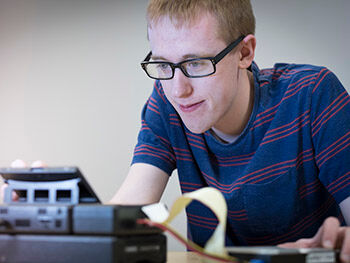UNIVERSITY NEWS LAST UPDATED : 06 JANUARY 2017

Forensic scientists are prominent in the news today, following the publication of the annual report of the forensic science regulator. The Guardian article covering the report made reference to the “increasingly important area of digital forensics”. But what is digital forensics; and what does a digital forensics analyst do?
Digital forensics concerns the acquisition, analysis and interpretation of data recovered from computers and digital devices to establish factual evidence in a whole range of criminal investigations.
As we become increasingly reliant on our digital devices, the phones, laptops, and other devices which we carry around with us and interact with daily contain a huge amount of data about our activities, relationships and interests. Experts in digital forensics can use these devices to investigate crime and gather evidence
Digital forensic analysts work with private service providers as well as for the police, conducting analysis of a range of digital equipment, such as mobile phones and laptops. They consider open files, images, encrypted files, network logs, communications logs and other information stored in digital devices in order to recreate a sequence of events or timeline of activities by the user, which can then be used to help determine whether and how a crime has been committed.
This information is then used to compile an expert report which can be presented in a court of law. There are strict rules and regulations for the handling and storing of digital evidence, as there are in other areas of forensic science. Analysts are responsible for maintaining the integrity of evidence and ensuring a complete chain of custody. As has been revealed in today’s report, proper handling of evidence is vital to ensure a case is not compromised.
The BCU degree in Computer Forensics ensures that students have the skills they need for a successful career in digital forensics. The varied course covers computer networking, ethical hacking and computer programming, working with a range of industry standard tools including EnCase, FTK, XRY and Cellebrite. Students also learn about the English legal system with an emphasis on IT law, how to compile an expert report, and develop court room skills to become an expert witness. They also learn about the rules and regulations governing forensic analysis and storing and examination of evidence to ensure that evidence is not compromised.
In addition to the course programme, students also have the opportunity to engage with experts from the industry by attending specialist boot-camps and guest lectures delivered by digital forensics practitioners.
All of which leaves them well-equipped for a career in the fast growing industry of digital forensics.